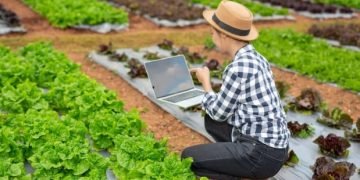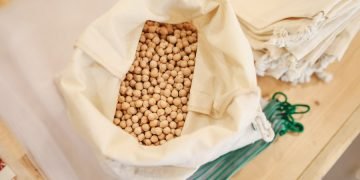In the evolving world we live in, technology has played a significant role in shaping various aspects of our lives, and food production is no exception. With the ever-growing global population and the pressing need to enhance food security, leveraging technology has become essential in boosting food production efficiency.
Let’s explore some ways in which technology can be harnessed to make food production more efficient and sustainable, ensuring we have more food on our tables and less strain on our wallets.
Integrating Smart Farming Techniques

One of the foremost ways technology has revolutionized food production is through smart farming. Smart farming involves the integration of advanced technologies like IoT devices, sensors, and automation to monitor and optimize agricultural processes. This approach is not just for large-scale farmers; even smaller setups like a backyard miracle farm can greatly benefit from smart farming strategies.
For instance, precision agriculture allows farmers to monitor the needs of individual plants and adjust their care accordingly. This reduces wastage of resources and ensures that each plant gets exactly what it needs to thrive. Moreover, automated systems can be used for watering, fertilizing, and even harvesting crops, significantly reducing the labor required and improving efficiency.
Utilizing Data Analytics and AI
The rise of data analytics and artificial intelligence (AI) in agriculture is another technological boon. These tools help farmers make informed decisions by analyzing data from various sources, predicting outcomes, and offering recommendations. For example, AI can analyze weather patterns, soil conditions, and crop health to suggest the best planting times and optimal crop varieties.
Implementing such technologies helps in predicting potential issues and mitigating risks before they become problems, thereby ensuring a more stable and reliable food production system. If you’re keen on diving deeper into the integration of technology in project management, you might find this article quite insightful.
Harnessing Renewable Energy Sources
Sustainable energy sources are crucial in reducing the environmental impact of food production. Solar, wind, and biogas energy can be harnessed to power farming operations, decreasing reliance on fossil fuels and reducing greenhouse gas emissions. This approach is not only eco-friendly but also cost-effective in the long run, helping farmers save on energy bills.
Renewable energy can be particularly useful for running greenhouse operations, irrigation systems, and other farm machinery. By making a shift towards cleaner energy, we contribute to a greener planet and a more sustainable food production chain.
Exploring Vertical Farming and Hydroponics
The concept of vertical farming and hydroponics has gained traction in urban settings where space is a premium. These innovative farming methods utilize technology to grow food in stacked layers or without soil, respectively. Vertical farming, in particular, can be a game-changer in producing food closer to urban consumers, reducing transportation costs and emissions.
Hydroponics, on the other hand, allows for the cultivation of crops in nutrient-rich water solutions, eliminating the need for soil. This method is highly efficient in terms of water usage and can be employed in areas with poor soil quality. For further insights into such innovative practices, here’s a read on leveraging cloud-based tools for efficiency in various fields.
Conclusion
In a nutshell, technology stands as a cornerstone in enhancing food production efficiency. From smart farming to data analytics, and from renewable energy to innovative farming methods, the possibilities are vast and promising. By embracing these technological advancements, we can ensure a steady and sustainable food supply, ultimately leading to healthier lives and a happier planet.
For those who are intrigued by the potential of creating their own sustainable food source, exploring systems like a miracle farm blueprint can be a step towards self-sufficiency and resilience. After all, in times of uncertainty, having control over your food supply can be both empowering and reassuring.
Embracing Digital Platforms for Market Access
The digital era has opened up new avenues for farmers to access markets and consumers directly. E-commerce platforms and mobile applications connect producers with consumers, bypassing traditional intermediaries.
This direct interaction not only ensures better prices for farmers but also provides fresh and locally sourced produce to consumers. Additionally, digital platforms offer a space for small-scale producers to showcase their products to a wider audience, thereby fostering inclusivity and diversity in the market.
Investing in Research and Development for Sustainable Practices
Continuous research and development are paramount for discovering new and sustainable practices in food production. The focus should be on developing climate-resilient crop varieties, efficient water management systems, and eco-friendly pest control methods.
Investment in agricultural research leads to innovations that are instrumental in addressing food security and environmental concerns. These innovations, when adopted widely, have the potential to transform the food production landscape, ensuring that it is sustainable, resilient, and capable of meeting the growing demand.
Fostering Education and Awareness on Sustainable Agriculture
Education and awareness-raising play a crucial role in promoting sustainable agriculture. Farmers, industry stakeholders, and consumers need to be well-informed about the benefits of adopting sustainable practices and the detrimental effects of unsustainable ones.
Workshops, seminars, and online courses can be instrumental in imparting knowledge and skills. When the community is educated about the importance of sustainability in agriculture, it creates a ripple effect, leading to collective efforts and a shared commitment to protecting the environment and ensuring food security.


























































